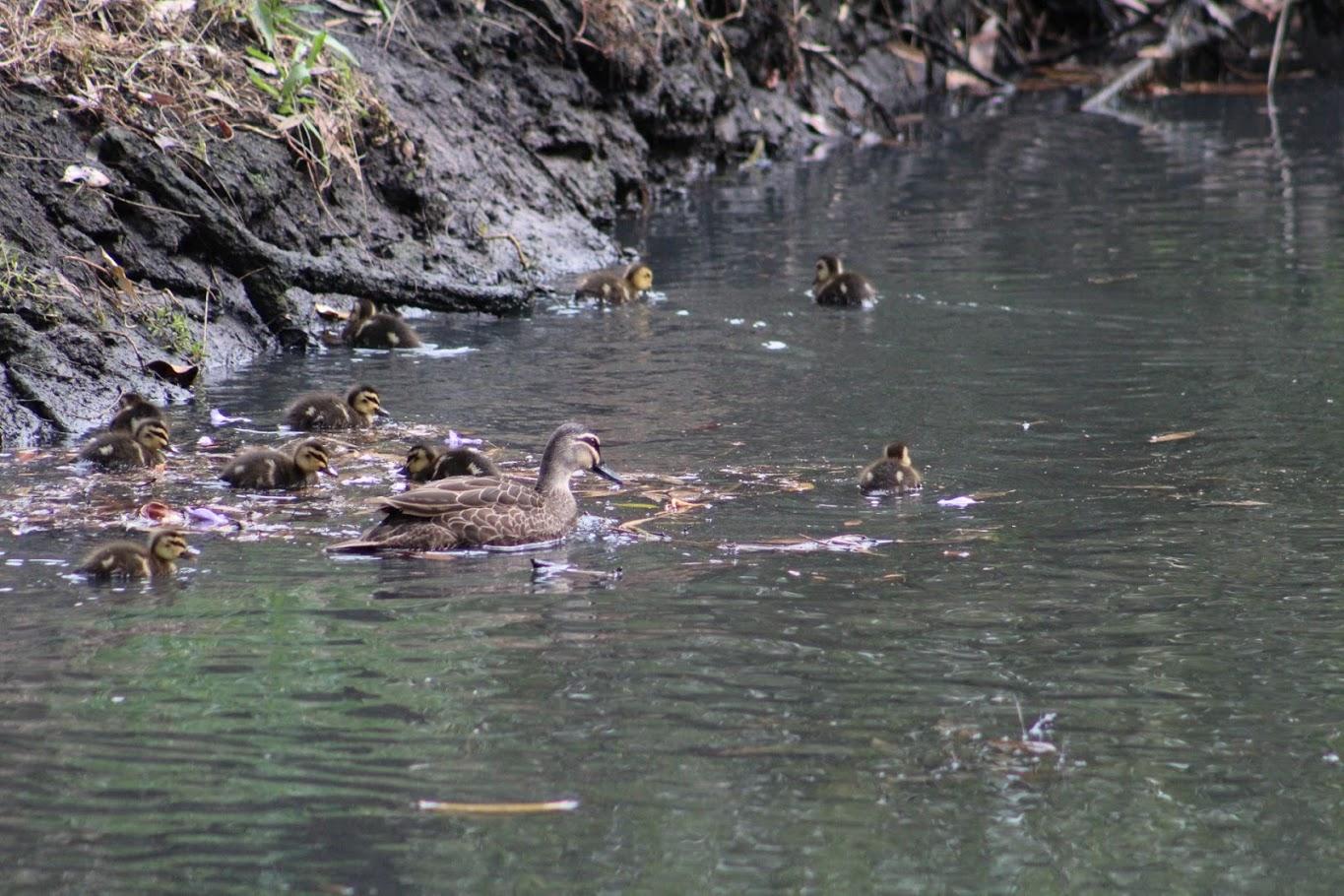June 28 - July 4, 2020: Issue 456
Northern Beaches Council LGA Tops Dog Attack Statistics Again: 3rd Quarter 2019/2020 data
Dog off-leash in Governor Phillip Park, June 18, 2020 10am, North Palm Beach - NB, this photo has been modified to protect privacy of dog-owner, they are not actually headless.
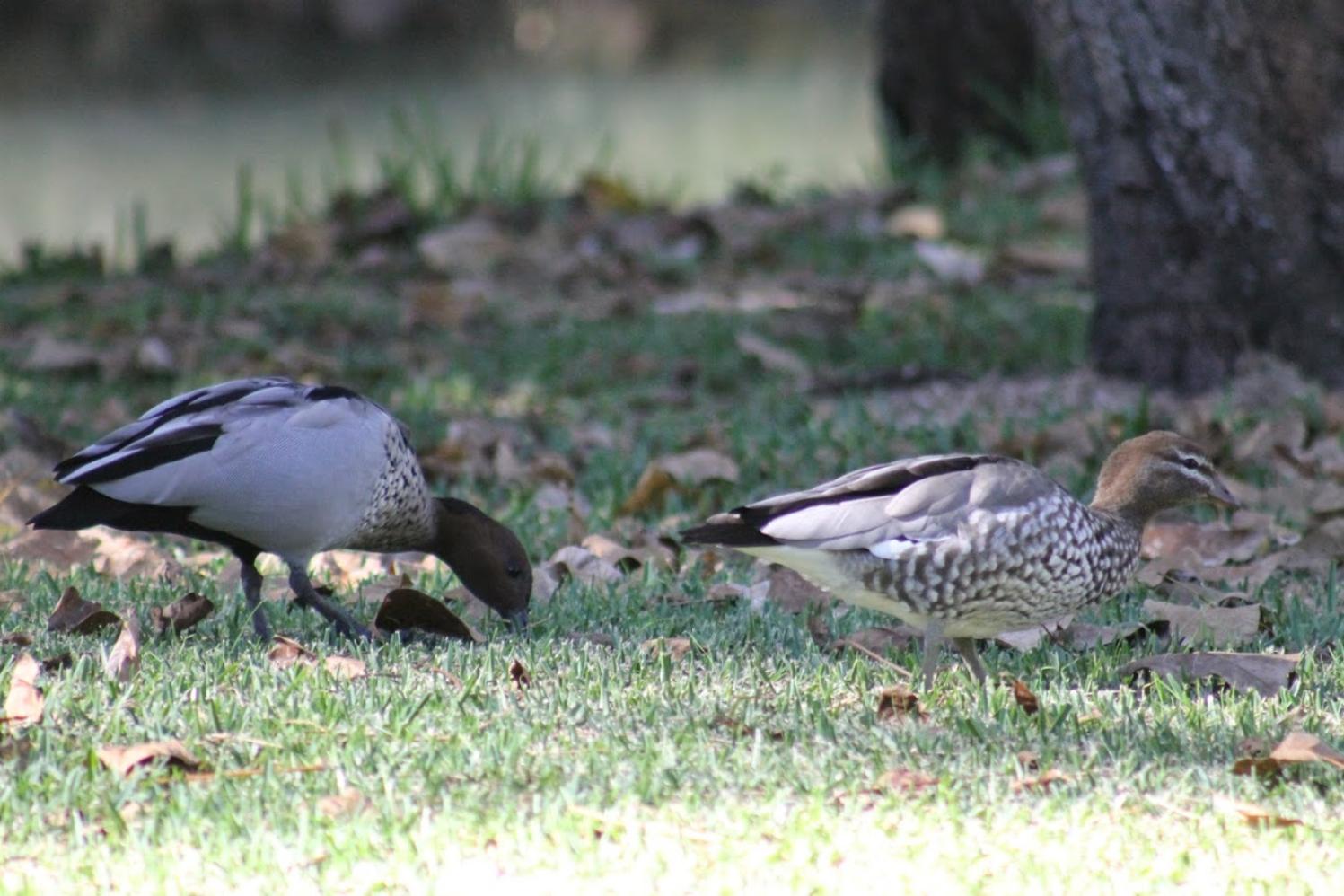
Australian Wood Duck pair at Governor Phillip Park in 2014 - also seen regularly in this space until past 2 years. No longer present. All native birds, reptiles, amphibians and mammals are protected by the NSW Biodiversity Conservation Act 2016
The NSW Office of Local Government has recently released the statistics for the Number of dog attack incidents reported by all councils from 1 January 2020 to 31 March 2020, showing that yet again the NBC area has the 2nd highest number of dog attacks with 58 official reported incidents, although the numbers recorded by the NSWOLG actually put the NBC LGA in 1st place with 70 attacks.
NBC LGA:
No of people involved in serious attacks: 9
No of people involved in less serious attacks: 23
Total number of people attacked: 32
Total animals attacked: 38
The Central Coast came in 1st with 69 and 133,740 registered dogs. Blacktown Council was 3rd with 52 dog attacks and 87,848 microchipped dogs in their LGA.
The NBC LGA has 59,496 microchipped dogs.
A comparison with an LGA of similar companion canines numbers, Newcastle City Council, with 53,839 microchipped dogs, had just 16 reported attacks.
Residents report dogs are off-leash in public areas, on beaches and in wildlife reserves and national parks at all times with no ranger in sight or those who are seen being approached by rangers simply 'turning tail' and moving away, and not being pursued.
Places where bird colonies and other wildlife once lived are now devoid of those species as the failures by council to undertake its obligations under the Companion Animals Act 1998 not only grow in number but are facilitated and escalated by an attitude that more public space should be turned over for the use of a few at the exclusion of the many - including that which actually lived and bred there or lives and breeds there still.
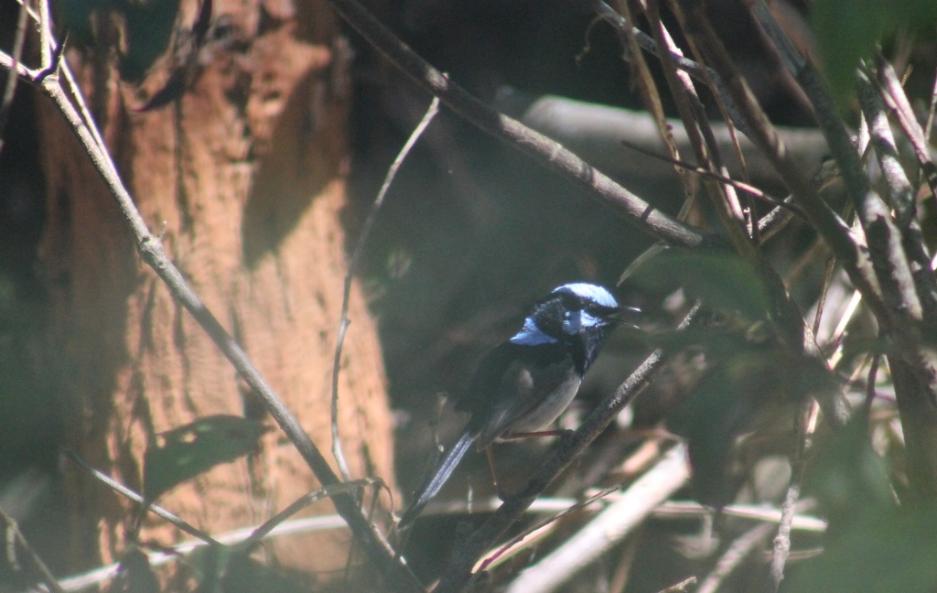
Male Superb Fairy Wren at colony at Careel Bay Playing Fields in 2012 - no longer present.
Research shows the original Warringah Shire Council commenced ensuring public spaces were kept safe from dog faeces and dog attacks from at least 1925, and prosecuted those who broke the rules.
Far from being progressive the representatives of the current council could be deemed regressive in their failure to protect all native species, as required, ensure all dog-free areas are dog-free, and keep public spaces for all residents safe, as required. Almost 100 years later the failure by this LGA's representatives to 'step up' is actually and actively destroying community, native species, and once pristine areas.
This failure extends right along the peninsula, as shown in daily emails and communications to this news service, posts on social media, or the reports required to be submitted by all councils to the OLG. Many in the Pittwater area, and right along these beaches, bush trails, lagoons and estuary are saying, categorically, to NBC Councillors; 'grow a backbone!' ... 'step up!'....'sick of the dog p** on my shoes'...'sick of the dog p** on our sports fields'....'sick of dogs off-leash running up to, and rushing at my children'.
As many attacks go unreported, with so many residents being dog-owners or dog-lovers or choosing to forgo all that making a complaint entails, what the real statistics may be could be much much higher.
Unfortunately, not reporting incidents is only aiding and abetting those granting themselves a special dispensation to do as they please whenever and wherever they wish.
Whatever side of the coin you rest on, or wipe the dog faeces now on your shoes off with - one matter is being made quite obvious through the latest statistics and those of the quarter that preceded these - this area now has a growing, without being seriously challenged, dogs off-leash at all times and in all places attacking people and other animals issue.
Numerous studies show native species will return to an area once it has been made safe or the presence and scents left by animals such as dogs, as hunters and predators, removed. A greater emphasis on encouraging responsible pet ownership and ensuring on-leash and no-dogs areas are adhered to would address this LGA's obvious problem - and all that once was present here may return.
At present, the ethos of We Do Not Inherit the Earth from Our Ancestors; We Borrow It from Our Children - and that includes, in any society that stakes a claim to being 'progressive' or 'modern' - the children of all other animals too, this quarter's second in a row high dog attack statistics for our area indicate a falling short of the community's aspirations.
As residents are expressing their determination to not allow all these other animal residents to go quietly into that long good night, underpinned by the belief that all other creatures must get to live here peacefully, in safety, without fear of attack, the question of; 'who let the dogs out?' will require an answer.
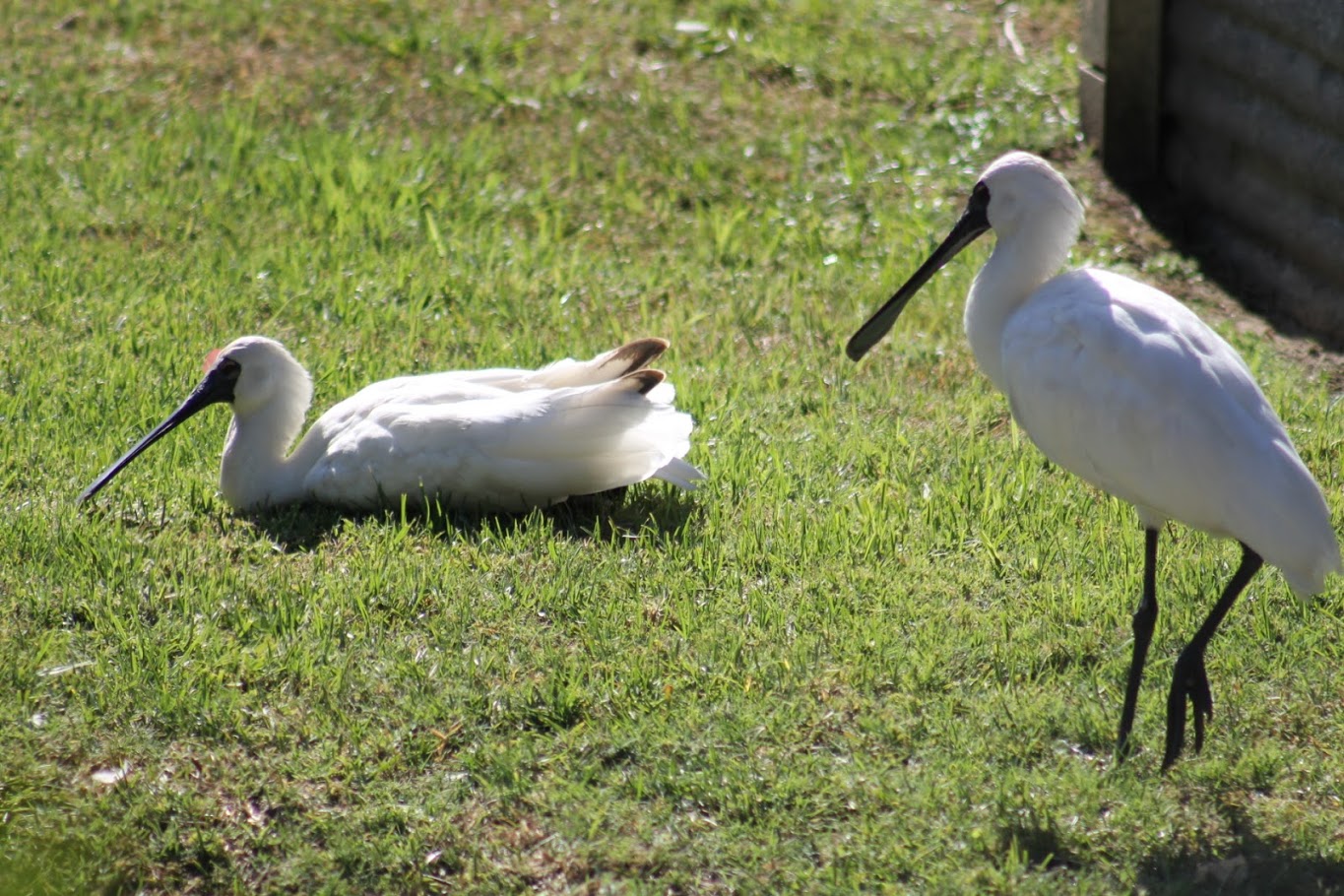
Royal Spoonbill pair at Careel Creek in 2014 - the creek and path running behind Barrenjoey High School and to the yellow brick road at Avalon Beach was once frequented by many shorebirds photographed extensively, and has become another unofficial dogs off-leash area despite signage - in 2020 many of these water birds are no longer present
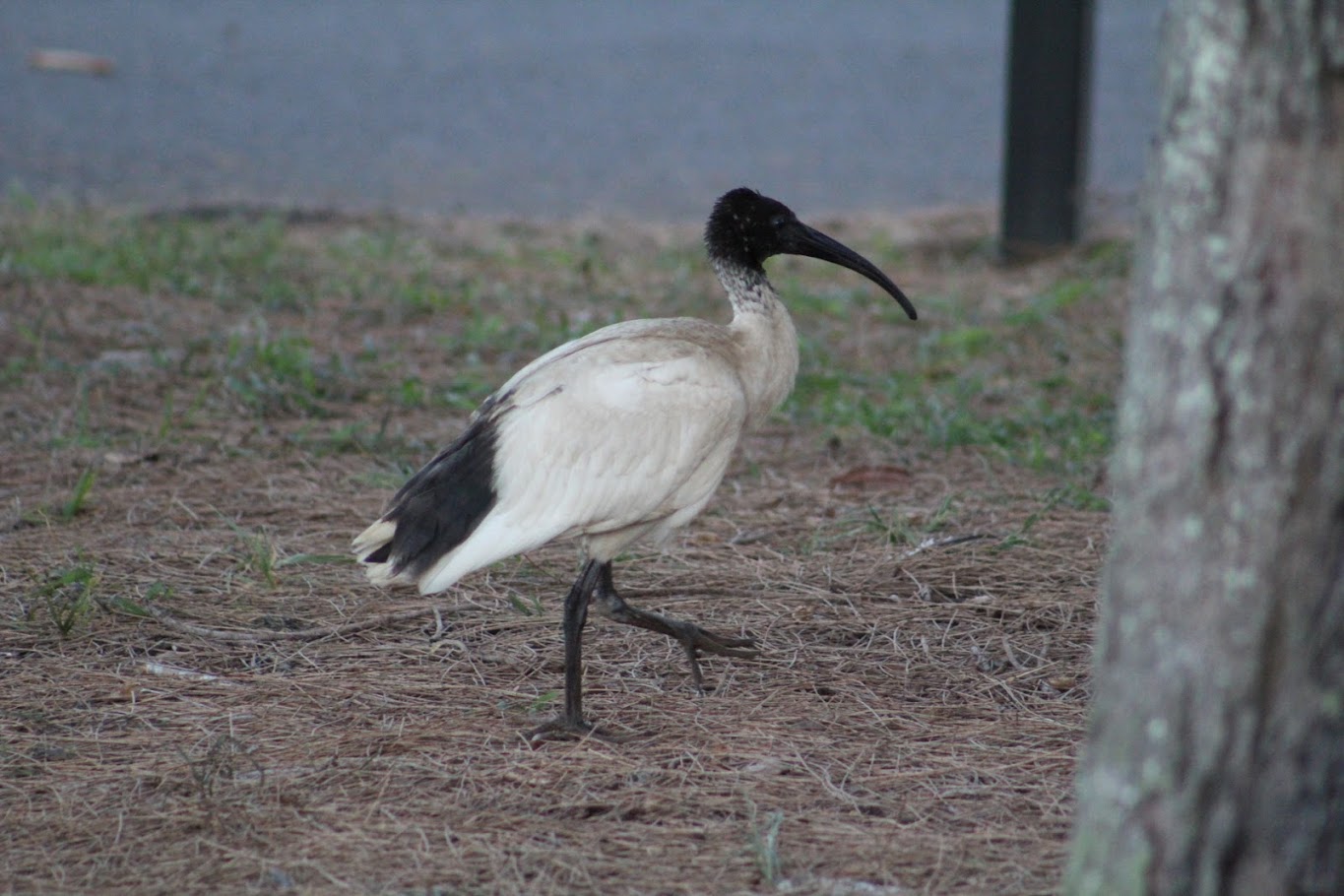
Australian Ibis at Careel Bay Playing Fields on Dawn stroll in 2018 - there are so many dogs off-leash in this on-leash area that these birds are no longer seen
Tips To Keep Dogs And Your Community Safe
To help keep dogs happy at home it is recommended that dog owners:
- Make sure they have a suitable yard and that they are providing plenty of stimulation and attention
- Provide adequate exercise by taking dogs on regular walks
- Alleviate boredom by providing toys
- Reinforce fences where dogs may be getting out
Children should always walk the dog with adult supervision. A young child may not have the strength to control an over-excited or anxious dog.
Obedience training is also a very valuable tool to help owners train their dogs and learn how to handle their dog in various situations. Even if your dog isn’t comfortable around people or other dogs, obedience training can be a safer way to work on socialising your pet.
Even normally well-behaved dogs can be unpredictable sometimes. If your dog is friendly, still don’t let it approach other dogs or other people as they might not be as comfortable.
Top tips to keep dogs and your community safe. May 8, 2020. Mitchell Shire. Retrieved from: https://www.mitchellshire.vic.gov.au/news/top-tips-to-keep-dogs-and-your-community-safe
''Thinking your dog isn’t capable of hurting someone or something isn’t an excuse. Council takes dog attacks very seriously and will prosecute and fine if people aren’t doing the right thing.''- MITCHELL SHIRE MAYOR COUNCILLOR DAVID LOWE
What Penalties Relate To Dogs That Are Encouraged To, Or Have, Attacked?
As a dog owner, you are liable if your dog attacks a person or another animal.
Encouraging dog to attack, bite, harass or chase any person or animal (other than vermin), whether or not actual injury is caused - 200 penalty units/$22,000: Maximum penalty amount
Encouraging restricted dog or declared dangerous or menacing dog to attack, bite, harass or chase any person or animal (other than vermin), whether or not actual injury is caused - s.17(1A)Prtovision for 5 years imprisonment (and permanent disqualification from owning a dog or being in charge of a dog in a public place in NSW s.23) 700 penalty units/$77,000 : Maximum penalty amount
Dog rushes at, attacks, bites, harasses or chases any person or animal (other than vermin), whether or not any injury is caused to the person or animal s.16(1)(a) 100 penalty units/$11,000 : Maximum penalty amount
Dog rushes at, attacks, bites, harasses or chases any person or animal (other than vermin), whether or not any injury is caused to the person or animal as a result of a reckless act or omission by the dog’s owner or another person in charge of the dog at the time of the attack s.16(1AA) up to 2 years imprisonment and/or 200 penalty units/$22,000: Maximum penalty amount
Restricted dog or declared dangerous or menacing dog rushes at, attacks, bites, harasses or chases any person or animal (other than vermin), whether or not any injury is caused to the person or animal s.16(1)(b) No 400 penalty units/$44,000 : Maximum penalty amount
Restricted dog or declared dangerous or menacing dog rushes at, attacks, bites, harasses or chases any person or animal (other than vermin), whether or not any injury is caused to the person or animal as a result of a reckless act or omission by the dog’s owner or another person in charge of the dog at the time of the attack s.16(1AB) 4 years and/or 500 penalty units/$55,000: Maximum penalty amount
Restricted dog or declared dangerous or menacing dog attacks or bites any person (whether or not any injury is caused to the person), as a result of the owner’s failure to comply with control requirements s.16(1A) up to 5 years imprisonment (and permanent disqualification from owning a dog or being in charge of a dog in a public place in NSW s.23) 700 penalty units/$77,000: Maximum penalty amount
